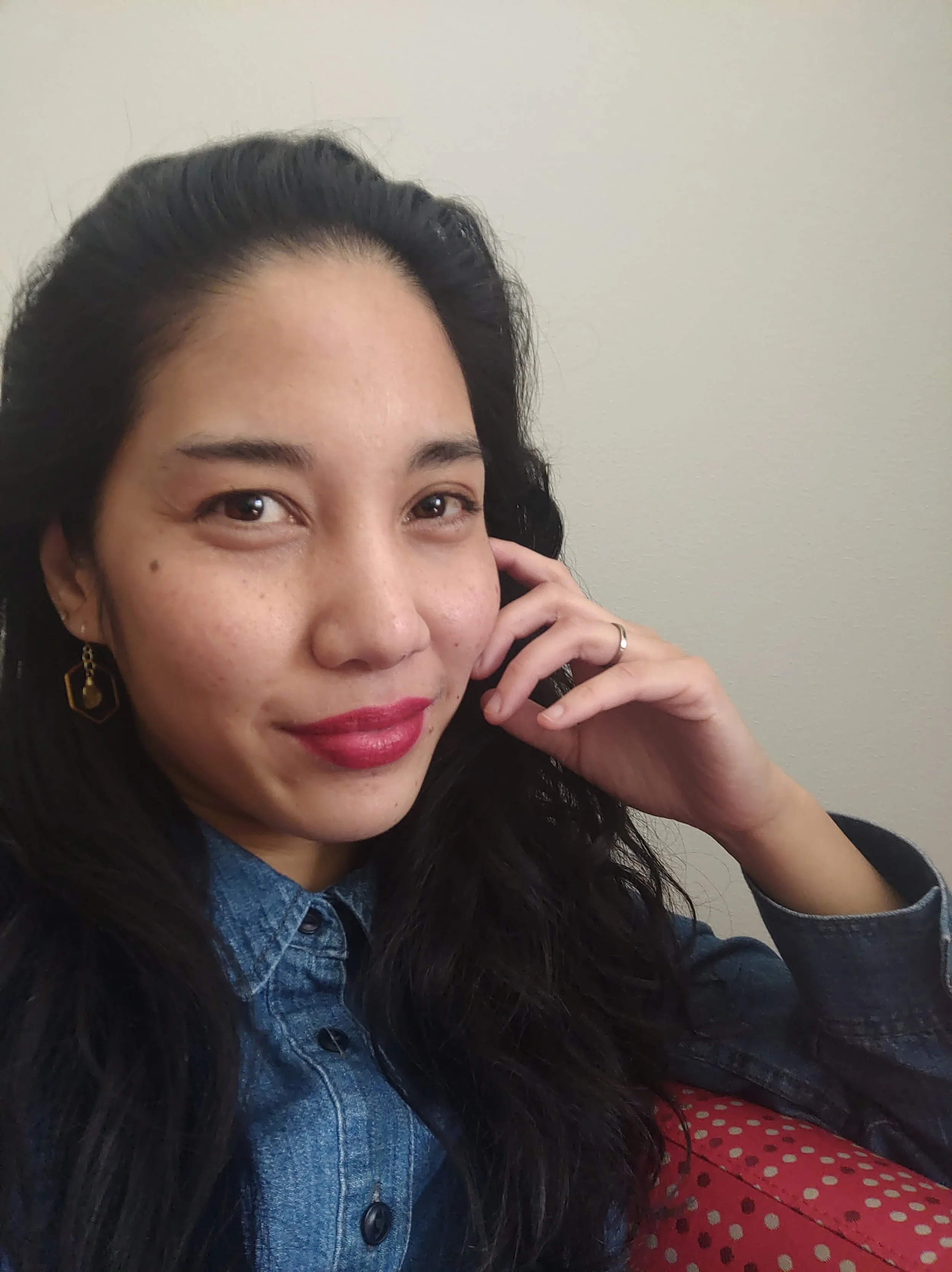Banker’s Boxes and Name Tags
Your dad hoards many things, which he hides in cupboards, piles on the floor, buys more containers to store them in. Upon retiring, he brought home several white banker’s boxes from his office. You don’t know what’s inside these boxes, only that there are a lot of them, and that, stacked, they block the door to the bathroom in your childhood bedroom. As you resist resentment and horror, you try to understand why he keeps so many things—including these boxes, likely full of paper he might never refer to but literally represent his life’s work. He worked 40 years with the same engineering company, in a job he started shortly after he and Mom immigrated to the U.S. from the Philippines in the early 1970s with your kuya, only about a year old at the time.
As a child, you sometimes accompanied him to the office because Lolo and Lola couldn’t babysit or Mom couldn’t pick you up after school or it was your dad’s day off but he needed to “stop by the office and finish something.” Armed with an incomplete rainbow of fluorescent highlighters from the supply closet and scraps of paper rescued from the recycling bin, you keep busy at Dad’s desk cluttered with stuffed accordian folders, rolls of blueprints, french curve stencils, knowing to keep quiet like you’re at the library or Sunday mass. You don’t remember many of his co-workers, but you do remember Jim, a rare Asian face in the office, who was Dad’s supervisor for a while and one of the only employees who smiled at you.
Dad has mentioned that Jim frequently encouraged him to take on leadership roles, but he never did. Only recently did he tell you, long after he retired, that he never pursued promotions because he didn’t think his white co-workers would take him seriously as their boss.
***
You didn’t realize how white librarianship was until the first day of orientation in grad school, and you do the BIPOC Head Count and it doesn’t exceed the fingers on your hands. This aligns with the profession, which you’ll learn has been steady at more than 85% white for decades.
You eventually land a coveted faculty librarian job and are relieved to not be the only person of color in your new workplace. Even your supervisor is a Chinese woman, and you imagine being in her position some day. You wonder if she could be a mentor to you, but you hesitate to approach her with heavy questions, like if she’s ever been underestimated or undermined as an Asian American administrator.
Because, early in your career, you are already experiencing the racist bullshit. At staff meetings, you are sometimes mistaken for being a student. At a conference, after you finish presenting, an audience member questions your authority. At the reference desk, other faculty members ask to speak with a real librarian. You try to forget interactions like these.
You become obsessed with looking “professional.” You experiment with lipstick and shorter hair, both you never wore until now. You often appear overdressed, but you’d rather err on this side even as you envy your white colleagues who wear cargo shorts or leggings-as-pants. Your co-workers whine about wearing name tags, but you cling to yours because it visibly labels you: Librarian.
Once, you are performing the opening duties assigned to you. It’s still dark out, and the sun hasn’t yet peeked through the evergreens outside. As you are powering on computers, the other staff member opening that morning sees you and screeches WHO ARE YOU? You are surprised by her surprise, her accusatory tone amplified by the high ceiling. You are wearing your best slacks, your name tag pinned to your blouse, and building keys swing from the lanyard around your neck. “I’m the new librarian,” you say. “We’ve met before.”
You realize, as the racial microaggressions keep happening, nothing you do to alter your appearance will be enough.
When you achieve tenure a few years later, you wonder if you can stick around for three more decades. Will you retire with the same job title? Will you move up or move on? Will something or someone keep you or tear you down?
***
At a recent holiday gathering, your family discusses using skills we learned in college. When Kuya asks Dad, “How much engineering do you remember?” he scoffs, saying “Not much. I try to forget.”
You wonder what bad memories he’s hoarding.
ALYSSA JOCSON PORTER
Alyssa Jocson Porter is a Filipina-American faculty librarian at Seattle Central College where she is the liaison to STEM and creative arts programs. Her research interests include BIPOC hiring & retention in librarianship. She also writes creative nonfiction and most recently published a piece in Nonwhite and Woman: 131 Micro Essays on Being in the World (Woodhall Press).

